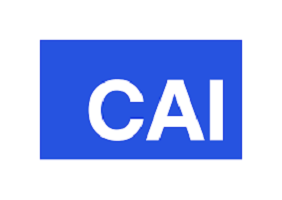Google CEO Sundar Pichai speaks with Emily Chang during the APEC CEO Summit at Moscone Center West in San Francisco on Nov. 16, 2023.
Justin Sullivan | Getty Images News | Getty Images
Google parent Alphabet reported third-quarter earnings that beat on top and bottom lines with strong revenue growth from the company’s cloud unit.
The company’s shares rose as much as 6% in after-hours trading.
Here are the results:
- Earnings per share: $2.12 vs. $1.85 expected by LSEG
- Revenue: $88.27 billion vs. $86.30 billion expected by LSEG
Here are other numbers Wall Street was watching:
- YouTube advertising revenue: $8.92 billion vs. $8.89 billion, according to StreetAccount
- Google Cloud revenue: $11.35 billion vs. $10.88 billion, according to StreetAccount
- Traffic acquisition costs (TAC): $13.72 billion vs. $13.53 billion, according to StreetAccount
Alphabet’s revenue grew 15% year over year, which is stronger than the same quarter last year.
The company reported blowout cloud revenue at $11.35 billion, up nearly 35% from the $8.41 billion a year ago. The company attributed its strong cloud results to its artificial intelligence offerings, which include subscriptions for enterprise customers.
Alphabet CEO Sundar Pichai opened his call with investors saying the company’s “full stack” of AI products is now operating at scale and being used by Google’s billions of users and “creating a virtuous cycle.”
The search company’s strong quarter kicks off a big week of earnings for tech’s megacap companies. Meta and Microsoft report on Wednesday, followed by Apple and Amazon on Thursday.
Alphabet’s net income increased to $26.3 billion, or $2.12 per share, compared to $19.7 billion, or $1.55 per share, in the year-ago quarter.
Google’s search business generated $49.4 billion in revenue. That was up 12.3% from a year ago, and the search business remains the largest contributor to revenue growth for the company, said Alphabet Chief Financial Officer Anat Ashkenazi on the call.

Turning to AI for more cost cutting
Alphabet plans to build on existing cost-cutting efforts around using AI to streamline workflow and manage headcount and the company’s physical footprint, Ashkenazi said.
“I plan to build on these efforts but also evaluate where we might be able to accelerate work and where we might need to pivot to free up capital for more attractive opportunities,” said Ashkenazi, who joined the company in June after 23 years at drugmaker Eli Lilly.
Alphabet reported advertising revenue of $65.85 billion. That was up from $59.65 billion a year ago, showing that Google’s advertising business continues to grow, though at a slower pace than in the second quarter.
YouTube ad revenue just beat analysts’ expectations, showing better growth than last quarter. The Google-owned company faces increased pressure from other advertiser options such as Netflix, TikTok and Amazon.
AI is improving YouTube recommendations, Chief Business Officer Philipp Schindler said on the call with investors. The company’s AI language model Gemini has given YouTube the ability to “recommend more relevant, fresher and personalized content to the viewer.”
Google Workspace, the company’s collection of cloud computing and productivity suite, saw strong growth during the third quarter, Ashkenazi said. Google Cloud Platform, the company’s data management and AI suite, saw growth that outpaced the cloud unit’s growth during the quarter, Ashkenazi added.
Other Bets, which includes the company’s life sciences unit Verily and self-driving car unit Waymo, reported revenue of $388 million in the third quarter. That is up from $297 million a year ago.
Last week, Waymo closed a $5.6 billion funding round to expand its robotaxi service in Los Angeles, San Francisco and Phoenix and to more cities.
Google Lens, the company’s image recognition product that uses mobile cameras and photos, is now used for more than 20 billion visual searches per month, Pichai said. It is one of the fastest-growing search products and is used often for shopping, he added.
Alphabet’s third quarter was filled with shake-ups externally and internally, including at its most senior ranks and its most important business.
Earlier this month, the company replaced Prabhakar Raghavan, the company’s search and ads boss since 2018, with Nick Fox, a longtime executive known for his role in Google’s Assistant unit. Additionally, the team working on the Gemini app, which includes the company’s artificial intelligence direct-to-consumer products, will join Google DeepMind under head Demis Hassabis.
The company on Tuesday announced it is evaluating how this reorganization will affect its segment operating results.

Credit: Source link














